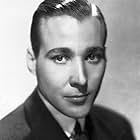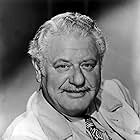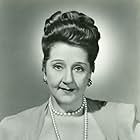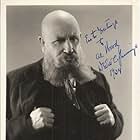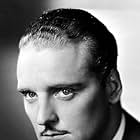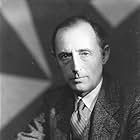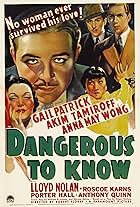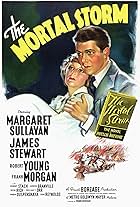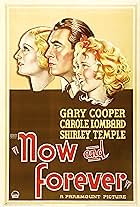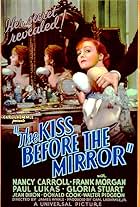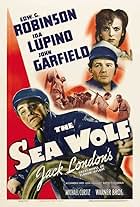AVALIAÇÃO DA IMDb
7,1/10
685
SUA AVALIAÇÃO
Adicionar um enredo no seu idiomaA young couple struggling against poverty must keep their marriage a secret in order for the husband to keep his job, as his boss doesn't like to hire married men.A young couple struggling against poverty must keep their marriage a secret in order for the husband to keep his job, as his boss doesn't like to hire married men.A young couple struggling against poverty must keep their marriage a secret in order for the husband to keep his job, as his boss doesn't like to hire married men.
- Direção
- Roteiristas
- Artistas
- Prêmios
- 4 vitórias no total
- Direção
- Roteiristas
- Elenco e equipe completos
- Produção, bilheteria e muito mais no IMDbPro
Avaliações em destaque
"Little Man, What Now?" is a miserable story. Now I am NOT saying it's bad...but it is hard to watch and even painful to watch at times. It's the story of a young married couple who are struggling just to survive the economic malaise in post-war Germany...where their Depression was far worse than that which hit the States. Jobs were very hard to come by and life was a serious struggle.
When the film begins, Hans and Emma (Douglass Montgomery and Margaret Sullavan) marry. However, Hans works at a peculiar place...where they ONLY employ bachelors and will fire him if he marries! And, there's a constant push to make the company meaner and leaner--and the employees are warned that one could easily be fired! Well, eventually he is exposed and loses the job and they are poor and hungry. He accepts an offer from his mother to move into her place. Yet, when they arrive, you see his mother is a shallow bi...um...not nice person. She wants to charge them rent and only things about herself and her live-in lover (Alan Hale)...and life is STILL a struggle. Fortunately, Hans gets a job...but ends up losing it and they are miserable once again...a pattern that continues throughout the film. And, oddly, despite their financial problems, the couple seem to occasionally plan and spend very poorly.
If you are looking for a feel-good film, this is NOT it!! It's a portrait of the Depression and Depressions are, by their very nature, depressing!! The film is well made and an interesting historical portrait...but how many folks wanna see something this unappealing and awful?! Yes, post-war Germany (1919-1932) REALLY sucked...and here is sucks in spades!!
By the way, you can tell this is a Pre-code movie when the film begins (it came out a few months before the new Production Code was put into effect). Douglass Montgomery's character is standing outside a gynecologist's office...and it says 'Gynecology' on the sign! You'd never see this in Post-Code films of the 30s, 40s or 50s. Well made but dreadful.
When the film begins, Hans and Emma (Douglass Montgomery and Margaret Sullavan) marry. However, Hans works at a peculiar place...where they ONLY employ bachelors and will fire him if he marries! And, there's a constant push to make the company meaner and leaner--and the employees are warned that one could easily be fired! Well, eventually he is exposed and loses the job and they are poor and hungry. He accepts an offer from his mother to move into her place. Yet, when they arrive, you see his mother is a shallow bi...um...not nice person. She wants to charge them rent and only things about herself and her live-in lover (Alan Hale)...and life is STILL a struggle. Fortunately, Hans gets a job...but ends up losing it and they are miserable once again...a pattern that continues throughout the film. And, oddly, despite their financial problems, the couple seem to occasionally plan and spend very poorly.
If you are looking for a feel-good film, this is NOT it!! It's a portrait of the Depression and Depressions are, by their very nature, depressing!! The film is well made and an interesting historical portrait...but how many folks wanna see something this unappealing and awful?! Yes, post-war Germany (1919-1932) REALLY sucked...and here is sucks in spades!!
By the way, you can tell this is a Pre-code movie when the film begins (it came out a few months before the new Production Code was put into effect). Douglass Montgomery's character is standing outside a gynecologist's office...and it says 'Gynecology' on the sign! You'd never see this in Post-Code films of the 30s, 40s or 50s. Well made but dreadful.
This is a sadly unknown and obscure film classic from the 1930s and one of my own favorites of all Frank Borzage's love stories.
A very sad and heartbreaking tale of a German couple surviving in a Nazi-occupied town in 1920s Germany, "Little Man, What Now?" was the first Borzage film to attack Hitler and the horrors of Nazism, prefiguring the director's later anti-Nazi masterpieces like "Three Comrades"(1938), "The Mortal Storm"(1940) and "Till We Meet Again"(1944).
"Little Man" is a painfully realistic and terrifying experience, especially the second half; and yet strangely full of hope and affirmation. Margaret Sullavan is as always luminous and touching in her portrayal of Lammchen Pinneberg. It is interesting to compare "Little Man" with Sullavan's other Borzage films like "Three Comrades" and "The Mortal Storm." There's something about her sweet innocence, devotion, and luminosity that works well with Borzage's soft-focus, anti-Nazi attitude. The glittering white dress she wears half-way throughout the film seems to suggest a symbol of light and hope (however transient) for Montgomery and against the brutal 1920s depression milieu, the same way Loretta Young's heartbreaking devotion and sweetness are intended to rescue Spencer Tracy's tough, smart-alecky personality in Borzage's 1933 masterwork "Man's Castle."
As with "Man's Castle", the Depression and, particularly in this case, Nazism are less physical than a spiritual or emotional threats to Borzage's lovers. Despite the bleak, depressing reality the characters have to surpass, both "Little Man" and "Man's Castle" retain Borzage's tender touch and humanity, inviting audience forgiveness for his characters' fragility and vulnerability.
This film will break your heart and should never be missed.
A very sad and heartbreaking tale of a German couple surviving in a Nazi-occupied town in 1920s Germany, "Little Man, What Now?" was the first Borzage film to attack Hitler and the horrors of Nazism, prefiguring the director's later anti-Nazi masterpieces like "Three Comrades"(1938), "The Mortal Storm"(1940) and "Till We Meet Again"(1944).
"Little Man" is a painfully realistic and terrifying experience, especially the second half; and yet strangely full of hope and affirmation. Margaret Sullavan is as always luminous and touching in her portrayal of Lammchen Pinneberg. It is interesting to compare "Little Man" with Sullavan's other Borzage films like "Three Comrades" and "The Mortal Storm." There's something about her sweet innocence, devotion, and luminosity that works well with Borzage's soft-focus, anti-Nazi attitude. The glittering white dress she wears half-way throughout the film seems to suggest a symbol of light and hope (however transient) for Montgomery and against the brutal 1920s depression milieu, the same way Loretta Young's heartbreaking devotion and sweetness are intended to rescue Spencer Tracy's tough, smart-alecky personality in Borzage's 1933 masterwork "Man's Castle."
As with "Man's Castle", the Depression and, particularly in this case, Nazism are less physical than a spiritual or emotional threats to Borzage's lovers. Despite the bleak, depressing reality the characters have to surpass, both "Little Man" and "Man's Castle" retain Borzage's tender touch and humanity, inviting audience forgiveness for his characters' fragility and vulnerability.
This film will break your heart and should never be missed.
Legendary American born director Frank Borzage was a master at romance set in difficult situations. He specialised in stories set in Germany just before or during the build-up to WW11 (The Mortal Storm '40 - Three Comrades '38) In this interesting pre-code drama he's following two young lovers in 1930s Germany - as they hide the fact they are newly married and expecting a child. The young man (Douglas Montgomery) is keeping his secret to protect his current job - that for various reasons demands he's single.
The settings (outdoor and indoor) are a delight to the eye, even when they are living in a stable! This is life as raw as it can be for two young newlyweds living in the glow of their own love - within a rapidly changing pre war German landscape. Prolific veteran cinematographer Norbert Brodin (known for several classic Noir dramas including "The Kiss of Death" '47) who, with a combination of fine art and set direction; create a dreamlike poetic look for this thoughtful and offbeat film that deserves to be better known.
Highly recommended for lovers of vintage dramas that highlight a historical time gone by, and do so with a special flair. Also, for the truly remarkable, unforgettable Margaret Sullavan.
The settings (outdoor and indoor) are a delight to the eye, even when they are living in a stable! This is life as raw as it can be for two young newlyweds living in the glow of their own love - within a rapidly changing pre war German landscape. Prolific veteran cinematographer Norbert Brodin (known for several classic Noir dramas including "The Kiss of Death" '47) who, with a combination of fine art and set direction; create a dreamlike poetic look for this thoughtful and offbeat film that deserves to be better known.
Highly recommended for lovers of vintage dramas that highlight a historical time gone by, and do so with a special flair. Also, for the truly remarkable, unforgettable Margaret Sullavan.
This movie represents the best of the early '30s soap opera genre. Based on an earthy German novel, it satisfies from the opening credits to the end. Margaret Sullavan was never more eager, poignant or believable and I think it must be the role that made her a star. Douglass Montgomery showed a promise he was never again given a chance to develop or display in Hollywood. The supporting cast included Alan Hale and Mae Marsh, two of the best actors in the business at the time. In my opinion, MGM got a great return on its investment. This movie managed to stay within the bounds of the excessive censorship in effect at the time (although some of the plot does come up to the line) and although it showed how desperate times call for desperate measures, it never lost its message of faith and hope. I hope it's available on DVD soon.
This is the story of a young German couple, Emma (Margaret Sullavan) and Hans (Douglas Montgomery), struggling to get by in Weimar Germany with a Depression going on. It reminds me of "Made for Each Other" starring James Stewart and Carole Lombard made in 1939.
Hans and Emma are unmarried and facing an accidental pregnancy. They get an appointment with a doctor where it is implied that they can get an abortion. But the doctor refuses, and having no other "references" of doctors who are trustworthy in this matter, they get married and decide to have the baby.
They face a multitude of problems, the first being that Hans is one of three men his employer has hired with the strict rule that none of the men be married. The reason is that said employer has a homely daughter of marriageable age and he is trying to foist her off on one of them. And said homely daughter has decided that Hans is the man she wants. That leads to unemployment for Hans, but not the way you think. Then they decide to move in with Hans' well off stepmother, but she sees Emma as her personal servant, and then it is discovered that dear old stepmom is running a brothel from her house when Hans is away during the day.
The two just encounter a raft of cold heartless employers that use the hard times to make ridiculous demands on their employees. It's not like any of this has any parallels in today's world right? But along the way the couple does meet some kind people or else this story would just be too depressing.
The turbulent political times are mentioned too, as Hans and Emma keep running into a penniless Marxist couple that is homeless and often hungry.
Frank Borzage spent his entire life in the United States, but his parents were both from Central Europe. I guess it is from the tales they told him that he learned enough about the place that his films set in post WWI Europe ring so true. As for the romantic angle in this film, Borzage was in a marriage in which the love was strictly one way. His wife did not care for him at all. Maybe some of the optimism and romanticism found in his films is rooted in his hope that somehow his own marriage would eventually work out.
Hans and Emma are unmarried and facing an accidental pregnancy. They get an appointment with a doctor where it is implied that they can get an abortion. But the doctor refuses, and having no other "references" of doctors who are trustworthy in this matter, they get married and decide to have the baby.
They face a multitude of problems, the first being that Hans is one of three men his employer has hired with the strict rule that none of the men be married. The reason is that said employer has a homely daughter of marriageable age and he is trying to foist her off on one of them. And said homely daughter has decided that Hans is the man she wants. That leads to unemployment for Hans, but not the way you think. Then they decide to move in with Hans' well off stepmother, but she sees Emma as her personal servant, and then it is discovered that dear old stepmom is running a brothel from her house when Hans is away during the day.
The two just encounter a raft of cold heartless employers that use the hard times to make ridiculous demands on their employees. It's not like any of this has any parallels in today's world right? But along the way the couple does meet some kind people or else this story would just be too depressing.
The turbulent political times are mentioned too, as Hans and Emma keep running into a penniless Marxist couple that is homeless and often hungry.
Frank Borzage spent his entire life in the United States, but his parents were both from Central Europe. I guess it is from the tales they told him that he learned enough about the place that his films set in post WWI Europe ring so true. As for the romantic angle in this film, Borzage was in a marriage in which the love was strictly one way. His wife did not care for him at all. Maybe some of the optimism and romanticism found in his films is rooted in his hope that somehow his own marriage would eventually work out.
Você sabia?
- CuriosidadesBased on the 1932 novel of the same name by Hans Fallada
- ConexõesReferenced in Sonhando de Dia (1934)
Principais escolhas
Faça login para avaliar e ver a lista de recomendações personalizadas
Detalhes
- Data de lançamento
- País de origem
- Idioma
- Também conhecido como
- Little Man, What Now?
- Locações de filme
- Empresa de produção
- Consulte mais créditos da empresa na IMDbPro
- Tempo de duração1 hora 38 minutos
- Cor
- Proporção
- 1.37 : 1
Contribua para esta página
Sugerir uma alteração ou adicionar conteúdo ausente

Principal brecha
By what name was Vale a Pena Viver? (1934) officially released in Canada in English?
Responda










